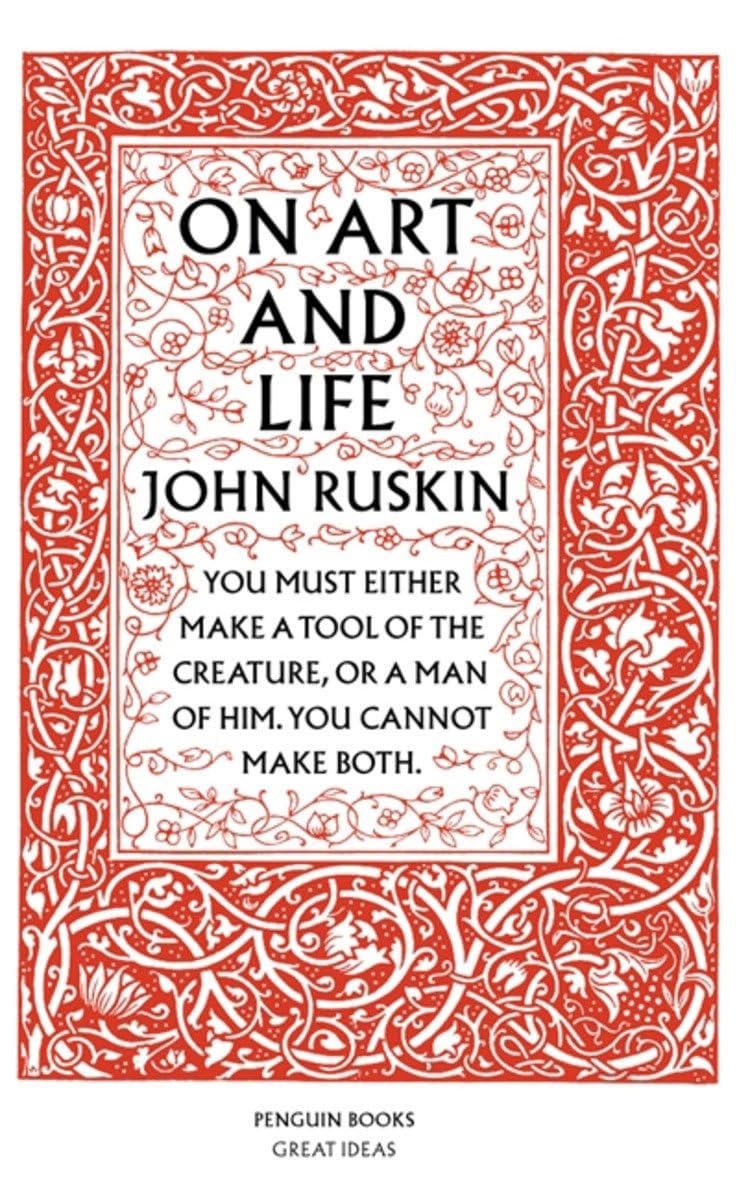Deliver to Greece
IFor best experience Get the App


Full description not available
C**E
Art andt he Thhinking life
I carry this in my purse against having to wait -like Dr office, garage etc. Absorbing reading and gives you much to think about
K**R
Beauty Remembered
Nietzsche said that with the death of the sacred, Beauty would continue, albeit accidentally.Mr. John Ruskin, however, set his sights on an earlier age, developing six principles that could be applied to gothic beauty, and in so doing, in my eyes, set down the principles for Beauty in general.The principles are: Rudeness, Changefulness, Naturalness, Grotesqueness, Rigidity and Redundancy.In our post-industrial age, perhaps the most telling is the first, Rudeness. Mr. Ruskin defines Rudeness as the introduction of originality into a work at the expense of a polished, finished product. What, you may ask? That's not how I do it at work! Me either brother, but it's nice to know why nothing I produce is beautiful.Which leads me to my next point concerning this little gem of a book. These principles can be applied, in my view, to Beauty in general, not just gothic. And it provides an interesting point of view with which to look at life. Suddenly, many of the 'best things' in life truly are free.I had no real education in aesthetics before reading this book, and have now delved deeper into the subject because of it.Maybe you will too.
S**S
How to appreciate art and life
This little book contains two essays from John Ruskin:"The nature of Gothic" and "The work of iron".This book opened my eyes to the nature of different types of buildings and the nature of the art used to adorn them. What type of stone or metal was used and why were certain decorations were used in the work. I had previously given no thought to this. I will now look on ancient buildings as works of art.In the last essay he explains the life giving properties of iron. How it gives life to the soil and the fact that it rusts, shows it is alive. I enjoyed his rant against how hideous iron rail fencing was around homes and how it was arrogant and saying that your property was so valuable that you were keeping everyone out. He points out that iron rail fencing is not good for any purpose. Ruskin had very srong political beliefs that come out in this work, he says that anyone benefitting from cheap labor is STEALING from those people that are not being paid for their work. That insight can be directed to us in the 21st century."The best art either represents the facts of its own day, or, if facts of the past, expresses them with accessaries of the time in which the work was done. All good art, representing past events, is therefore full of the most frank anachronism, and always ought to be. No painter has any business to be an antiquarian. We do not want his impressions of suppositions repecting things that are the past. We want his clear assertions respecting things present." (Page 45)
Trustpilot
1 week ago
5 days ago